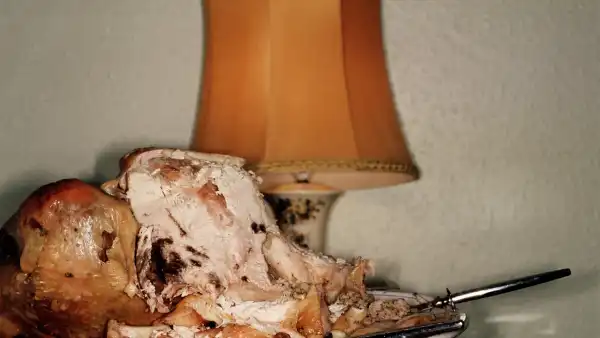
Nothing is eternal in this life, and no one is eternal. No matter how hard the brightest minds of our time try, they have not yet succeeded in inventing the elixir of immortality. And in anticipation of this discovery of the age, we, unfortunately, continue to lose our loved ones and mourn them.
Recently, my beloved relative passed away. He left behind for us, his family, not only warm memories, but also a lot of things acquired through long and honest work. And while everything is clear with movable and immovable property to some extent, the dilemma of what to do with the deceased's personal belongings has become very acute.
People's opinions on this matter differ radically, often delving into superstitions. So I decided to find out the right way to act from a priest I know. And his answers did all the talking.
What to do with things inherited from a deceased person?
After the funeral of a loved one, relatives have a legitimate question: what to do with their belongings? There are many myths among the people. Some are sure that wearing the clothes of the deceased is a “bad omen,” that it harms the aura, karma, and takes on the diseases or even the fate of the deceased. Some, on the contrary, consider it an honor to wear a thing in memory, paying tribute.
But all this, as it turned out, has little in common with the Church's position.
I turned to my father with a few questions that worried me the most.
Does the Church allow us to carry the belongings of the deceased?
The priest answered my question simply and profoundly: a person lives as long as the memory of him lives. And memory is not just abstract memories. It consists of completely material things: the fruits of a person's labor and evidence of his existence.
Personal belongings are the very real testimonies of a life that has passed. By using them, we do not “disturb the spirit,” but rather continue the bright memory of a person, as if giving their belongings a new life. This is exactly what the Church insists on.
The decision to wear or give away items depends on the memories they evoke. If a deceased person's shirt brings warmth and gratitude to you, wear it for good health. If the item is associated with serious illness and suffering, it may be better to give it away.
Many people are afraid that by wearing a deceased person's item, they may “take on” their sins. The priest explained that this superstition has nothing to do with the Orthodox faith. Sin is not energy or a virus transmitted through a sweater, but a conscious choice of a person's will.
The verdict is unequivocal: using the deceased's belongings is not only possible, but also worth it, if it maintains a good memory of him or her.
However, there is one extremely important nuance. If disputes arise between heirs over property, the Church calls for the following main rule: maintaining peace between the living is the best memory for the deceased. Sometimes, giving in to small things in order to preserve family love is the highest manifestation of Christian virtue.
Is it possible to give away the deceased's belongings and when is it best to do so?
This second question of mine touched on another common superstition: “don’t touch anything until 40 days.” The father’s answer amazed me.
The Church not only allows, but also encourages, the giving of the deceased's belongings as alms for their soul. And it is advisable to do this in the first 40 days after death. Why?
According to Christian teachings, it is during this period that the soul's posthumous fate is decided, its private judgment takes place. Therefore, the deceased needs our prayerful support more than ever. When you give clothes or other belongings to the needy and ask them to pray “for the repose of the servant of God (name),” this prayer and good deed become your effective manifestation of love and help for the soul of your relative.
Therefore, the popular saying “don't touch anything for 40 days” is a harmful myth that deprives the deceased of such important support.
Of course, you can give things away at any time: before 40 days or after. The main thing is to do it with a pure heart. You should give away clean and usable things.
And what to do with what is no longer useful?
There are also rules here, especially regarding religious items.
1. Ordinary useless things. Old worn-out clothes, chipped dishes, broken furniture — all of this can be safely thrown in the trash. No special rituals are needed here.
2. Religious items. But here everything is different. Old icons, personal crosses, damaged prayer books or dried prosphora should not be thrown in the trash. They should be treated with reverence. Such items should either be burned and the ashes buried where people do not go, for example, under a tree in the garden or in a cemetery, or thrown into the water.
What if I have a psychological problem?
The priest also touched on a very human aspect that is often forgotten. If it is psychologically difficult for you to sleep in the bed where a loved one died, or to wear their favorite watch because it causes unbearable pain, don't torture yourself.
The main goal is to preserve a bright memory, not to torment yourself. Everyone has their own grieving process. If a thing does not allow you to “let go” of the deceased and prevents you from living on, perhaps it is worth saying goodbye to it. Similarly, for purely hygienic and psychological reasons, sometimes it is worth replacing bed linen or even a bed on which a person was ill for a long time. And there is no sin or betrayal of memory in this.
Talking to the priest was a real relief for me. It helped me separate old superstitions from wisdom, and fear from bright memories and love.
Джерело: ukr.media






